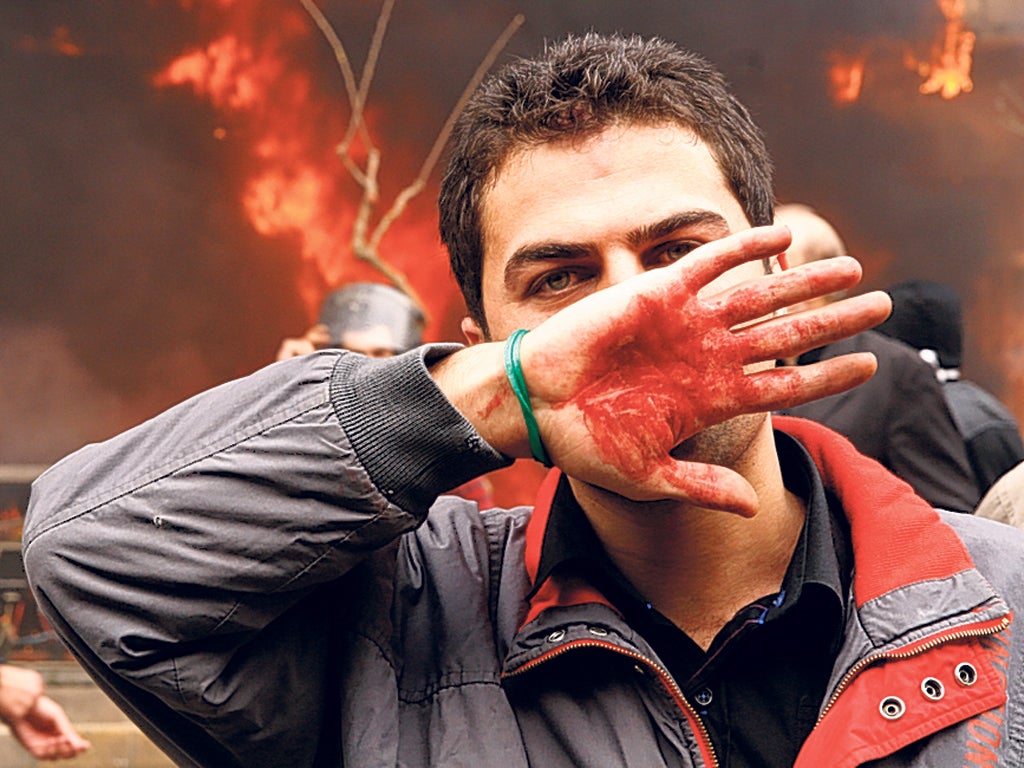Twitter faces user backlash over move to censor messages
Critics say technology to block tweets in individual countries breaks website's free-speech principles

Twitter was facing a backlash from its users last night after the website said it had the technology to censor tweets on a country-by-country basis.
The revelation has sparked criticism that the site is departing from its free-speech principles as its looks for ways to raise its global footprint and profits.
In an online statement, the San Francisco-based company told users it could now "reactively withhold content from users in a specific country". Twitter defended the technology as a way of ensuring the maximum possible audience could view its content while adhering to specific laws in different countries.
Previously when Twitter was forced to delete a tweet it would be taken down worldwide. Now individual tweets can be blocked in specific countries. An example it gave was Germany, where glorification of Nazism or publishing Hitler's Mein Kampf is illegal. If a tweet broke German law, Twitter could block users in Germany from reading it but continue to allow others worldwide to see it.
"We haven't yet used this ability," the statement from Twitter read. "But if and when we are required to withhold a tweet in a specific country, we will attempt to let the user know, and we will clearly mark when the content has been withheld."
Free speech advocates are worried the new technology will encourage repressive governments to insist Twitter takes down critical content, especially given the website's role in helping to organise mass protests during last year's Arab Spring.
"While censoring tweets that break the law in individual countries is preferable to taking down the content altogether, we're going to be monitoring this very closely to ensure Twitter's commitment to free speech isn't watered down," said Mike Harris, head of advocacy at Index on Censorship.
The move is part of a fine line Twitter has to tread as it attempts to expand into new countries. Venture capitalists have invested millions in the company and expect to see good returns. So Twitter needs to expand its audience base – currently around the 100 million mark – and find ways of introducing adverts.
Twitter users were quick to point out that the company's new willingness to consider censoring tweets is in stark contrast to its previously stated mantra that it is "the free speech wing of the free speech party".
However, Twitter's new approach to deleting tweets on a country-specific basis is not unusual. Google, eBay and Facebook all have similar systems in place.
Tyranny's Scourge: Twitter protests
*Iran: Long before the Arab Spring, Twitter helped protesters co-ordinate demonstrations against the regime after the disputed 2009 presidential elections. Academics have since questioned how prominent a part the website played compared with word of mouth and mobile phones, but it was nonetheless dubbed the first "Twitter revolution". The regime regularly blocks access to Twitter.
*Egypt: As the Arab Spring took hold, Twitter became one of a number of social networking platforms to help co-ordinate opposition movements. "Egypt", "Jan25", "Libya", "Bahrain" and "protest" were the most popular hashtags in the Middle East during the first three months of last year.
*China: As the authorities are aware of how opposition forces have used Twitter, the website is banned.
Reaction: Word on the web
@el_audiman: Communication is a human need. If you censor Twitter, the world will find another way to express itself. Don't kill the tweet.
@chris_coltrane: It's cool that Twitter want to censor tweets to help bring freedom of speech to places like China.
@declandf: I support Twitter censorship, if the first thing they censor is people taking photos of their breakfast.
@FakeChrisRuen: Twitter policy much closer to real censorship than anything in SOPA. Where's the blackout? Where's the boycott?
Join our commenting forum
Join thought-provoking conversations, follow other Independent readers and see their replies
17Comments